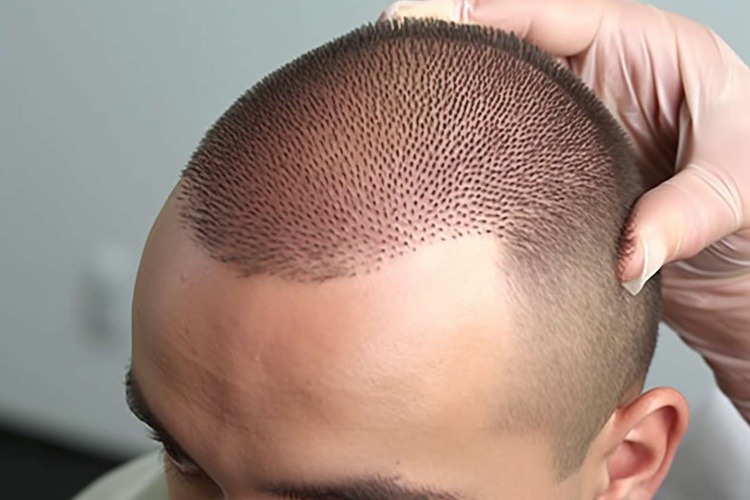Hair Transplant Costs: UK vs Turkey in 2026
The rising trend of hair transplants has positioned the United Kingdom and Turkey as leading destinations, each with unique advantages. Britain offers regulated, high-standard services, while Turkey excels in cost-effectiveness and comprehensive care packages. Understanding the cost dynamics, advantages, quality standards, and risks aids in making an informed decision, ensuring successful and satisfactory procedures.

The decision to undergo hair restoration surgery involves careful consideration of multiple factors, from procedural costs to clinic standards and travel logistics. As two of the most sought-after destinations for these procedures, the UK and Turkey present distinct advantages and challenges for prospective patients.
Understanding the Upsurge in Hair Transplants
Hair loss affects millions of people globally, with pattern baldness impacting approximately 50% of men by age 50 and a significant proportion of women experiencing thinning hair throughout their lives. The social and psychological impact of hair loss has driven demand for effective restoration solutions. Technological advances in follicular unit extraction and direct hair implantation techniques have made procedures less invasive, with shorter recovery times and more natural-looking results. Cultural shifts have also normalized cosmetic procedures, reducing stigma and encouraging more individuals to seek treatment. The rise of medical tourism has further expanded access, allowing patients to explore international options that may offer cost savings without compromising quality.
Weighing Risks and Benefits
Any surgical procedure carries inherent risks that must be understood before proceeding. Common complications include infection, scarring, unnatural-looking hairlines, and poor graft survival rates. Patients may experience temporary swelling, numbness, or discomfort during recovery. Choosing an inexperienced practitioner or substandard facility significantly increases these risks. However, when performed by qualified surgeons in accredited clinics, hair transplantation generally has high success rates and patient satisfaction levels. Benefits include permanent hair restoration, improved self-confidence, and minimal ongoing maintenance compared to non-surgical alternatives. Realistic expectations are crucial, as results vary based on individual hair characteristics, the extent of hair loss, and the skill of the surgical team.
Advantages of Choosing Turkey
Turkey has emerged as a global leader in medical tourism for hair restoration, attracting tens of thousands of international patients annually. The country offers several compelling advantages for those considering treatment abroad. Cost efficiency stands out as the primary draw, with procedures typically priced significantly lower than in Western Europe. Many Turkish clinics operate at high volumes, allowing surgeons to develop extensive experience and refine their techniques. Comprehensive packages often include accommodation, airport transfers, and post-operative care, simplifying the logistics for international patients. Istanbul and other major cities boast modern facilities with internationally trained staff and state-of-the-art equipment. The competitive market has driven innovation and service quality improvements across the sector.
Comparative Quality and Safety
Quality standards vary significantly both within and between countries, making thorough research essential. In the UK, hair transplant clinics must comply with Care Quality Commission regulations, ensuring baseline safety and hygiene standards. Surgeons typically hold relevant medical qualifications and professional memberships. However, the lack of specific regulation for cosmetic procedures means quality can still vary considerably. Turkey has made efforts to regulate its medical tourism industry, with many leading clinics holding international accreditations such as JCI or ISO certifications. The best Turkish facilities match or exceed UK standards, employing experienced surgeons and modern techniques. However, the sheer number of clinics in Turkey means quality ranges from excellent to concerning. Patients must verify credentials, review before-and-after portfolios, and seek independent reviews. Language barriers and distance can complicate follow-up care when complications arise after returning home.
The Cost Dynamics: UK vs. Turkey
Pricing structures for hair transplantation differ substantially between these two destinations, reflecting variations in operating costs, market competition, and economic factors. Understanding these differences helps patients make informed financial decisions.
| Procedure Type | UK Cost Estimation | Turkey Cost Estimation |
|---|---|---|
| FUE (1000-2000 grafts) | £3,000 - £6,000 | £1,200 - £2,500 |
| FUE (3000-4000 grafts) | £7,000 - £12,000 | £2,000 - £3,500 |
| FUT/Strip Method | £4,000 - £8,000 | £1,500 - £3,000 |
| DHI Technique | £8,000 - £15,000 | £2,500 - £4,500 |
Prices, rates, or cost estimates mentioned in this article are based on the latest available information but may change over time. Independent research is advised before making financial decisions.
In the UK, costs reflect higher operational expenses including staff salaries, facility overheads, and regulatory compliance requirements. Prices typically cover the procedure itself but may not include consultations, medications, or follow-up appointments. Turkish clinics often provide all-inclusive packages covering flights, accommodation, transfers, medications, and multiple nights of post-operative care. When comparing total expenses, patients should factor in travel costs, time away from work, and potential expenses for addressing complications. Currency fluctuations can also impact the final cost for international patients. Some UK patients find value in domestic treatment due to easier access for follow-up care and legal recourse if issues arise.
Beyond direct costs, patients should consider the value of convenience, communication ease, and continuity of care. Domestic procedures eliminate travel stress and allow for straightforward follow-up appointments. International options require more planning but can deliver substantial savings that make previously unaffordable procedures accessible. Insurance rarely covers cosmetic hair transplantation, though some policies may cover procedures performed for medical reasons such as scarring or trauma.
Making an Informed Decision
Choosing between UK and Turkish providers requires balancing multiple considerations beyond price alone. Patients should thoroughly research specific clinics, verify surgeon qualifications, and review genuine patient testimonials. Consultations, whether in-person or virtual, help assess communication quality and establish realistic expectations. Understanding the full scope of aftercare, including what happens if complications develop, protects against unexpected challenges. Some patients opt for hybrid approaches, such as initial consultations in the UK followed by procedures abroad, or vice versa. Ultimately, the best choice depends on individual circumstances, budget constraints, risk tolerance, and personal priorities. Taking time to gather information and ask detailed questions leads to better outcomes and greater satisfaction with the investment in hair restoration.
This article is for informational purposes only and should not be considered medical advice. Please consult a qualified healthcare professional for personalized guidance and treatment.




